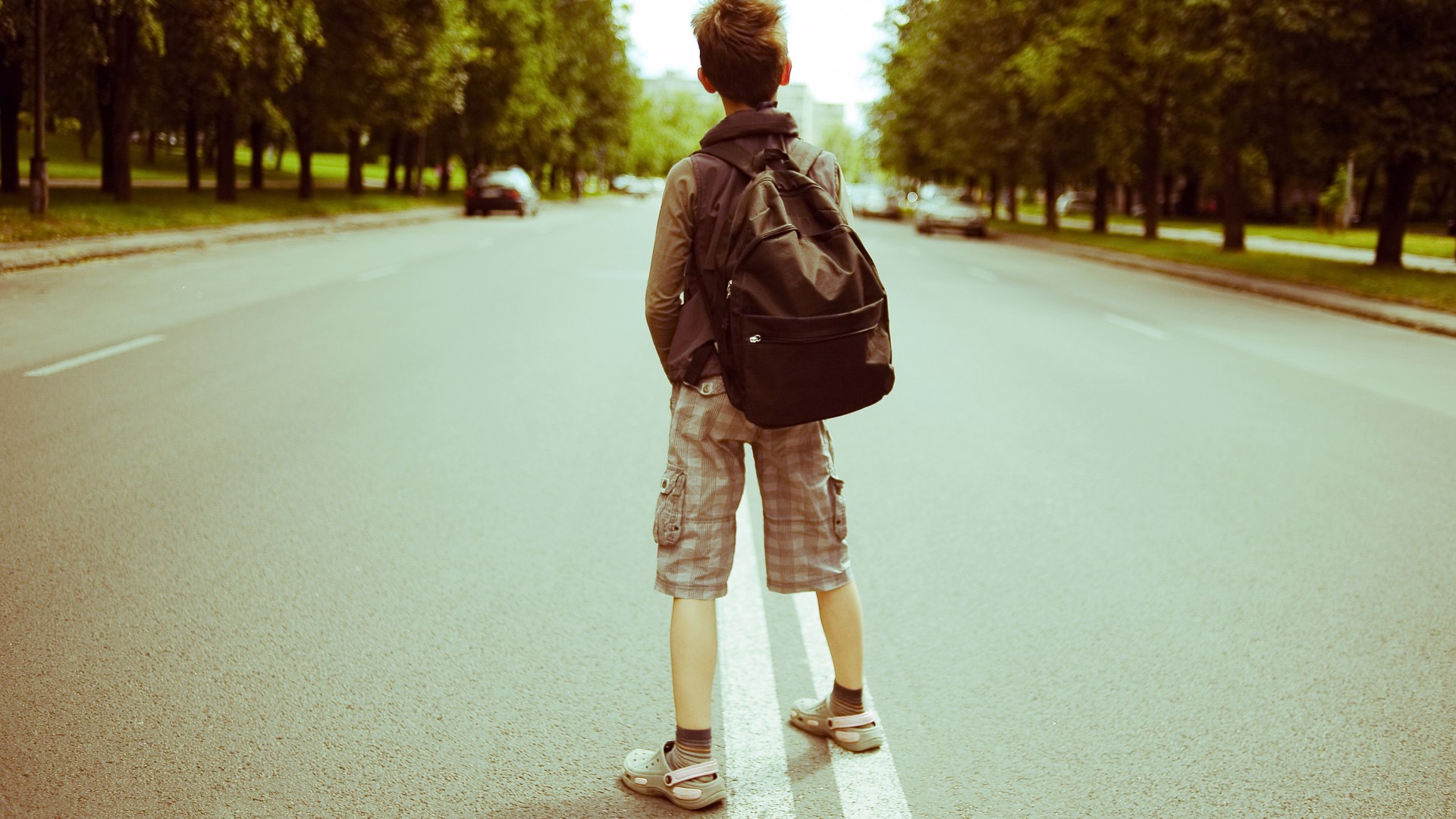My hands shook as I packed my sons’ brand-new lunchboxes. At ages 6 and 9, they were headed off to their first day of school after years of being homeschooled.
The house was quiet when I returned from dropping them off. I waited for waves of grief or guilt to wash over me. To my surprise, they never came.
There was nothing particularly unusual about this transition—except for the anxiety I’d had beforehand. I embodied the idea of “helicopter mom” long before I heard the term bandied about on the Internet.
Helicopter parents are the philosophical opposites of “free-range” parents, a phrase popularized by Lenore Skenazy. The columnist garnered controversy in 2008 when she wrote about the time she let her 9-year-old son ride the subway by himself.
As I prepared for the arrival of our firstborn a decade ago, I determined to be a great mom. I read all the books. I formed opinions, lots of them. And regardless of what my mother-in-law and mother said, and regardless of the kindly offers of help and support, I was convinced that my kids’ well-being depended on me and only me. Homeschooling was just one way that I would pilot my parental helicopter.
Oh, there were other good reasons to homeschool. By the time my oldest was 9, we had lived in four different countries, and I couldn’t bear uprooting my children from school again and again. But I homeschooled mostly because, for a time, I was unwilling to trust my kids’ education to anyone other than me. In other words, I was terrified of taking my hands off the control panel. I was worried that something terrible might happen to them if I wasn’t there.
In Marilynne Robinson’s novel Gilead, protagonist John Ames preaches a sermon on Abraham, who, in Genesis 21–22, sends one of his sons out into the wilderness and is called upon to sacrifice the other. “The Lord in both instances sends angels to intervene at the critical moment to save the child,” he says.
Every parent, Ames suggests, “must finally give his child up to the wilderness and trust to the providence of God… Great faith is required to give the child up, trusting God to honor the parents’ love for him by assuring that there will indeed be angels in that wilderness.”
After seeing my children suffer three broken bones in three different countries, several rounds of malaria and other parasites, a couple of hospitalizations, and many lonely days far from family and friends, I came to understand more about the wilderness. There were days when I couldn’t bear to let my children out of my sight; nights when I checked repeatedly to make sure they were all right. So how could I let them go off to school for the whole day?
Each step of the parenting journey—from releasing a baby’s hands so she can take those first wavering steps on her own, to sending a 5-year-old to kindergarten, to (my friends tell me) seeing a new graduate commence a new stage—requires great faith. It is hard to trust the providence of God, hard to trust that there will indeed be angels in that wilderness.
My children are flourishing in school. They run to greet their friends and teachers each morning; they run to greet me in the afternoon, to tell me all about their days full of lessons that I did not plan, activities that I did not oversee. Their teachers now joyfully share the burden I didn’t know I was carrying.
In Numbers 11, Moses, exhausted from shouldering the responsibility of shepherding—essentially parenting—the grumbling Israelites, complains to God. “Did I conceive all these people?” he asked. “I cannot carry all these people by myself; the burden is too heavy for me” (vv. 12, 14). God tells Moses to gather 70 people so that God can grace them with a portion of Moses’ spirit, so that Moses won’t have to carry the burden alone.
No one can—or should—pilot the parenting helicopter solo and without breaks. But neither is the only alternative to put the kids out to pasture and declare them “free-range.”
Our culture idealizes independence and the do-it-yourself spirit. We love stories of ingenious self-sufficiency. But parenting, as I’ve learned the hard way, isn’t a test of individual endurance. At times it’s a team sport. At times it’s a relay. It’s always a race to be run in the company of others. Families, church families, teachers, librarians, medical professionals, neighbors—the Lord God places these people as angels in the wilderness.
It doesn’t just take a village to raise a child. It also takes grace.
Each step of the parenting journey requires great faith. It is hard to trust the providence of God, hard to trust that there will be angels in that wilderness.
Rachel Marie Stone is the author of Eat With Joy and The Unexpected Way. She lives near Philadelphia with her husband and two sons.










